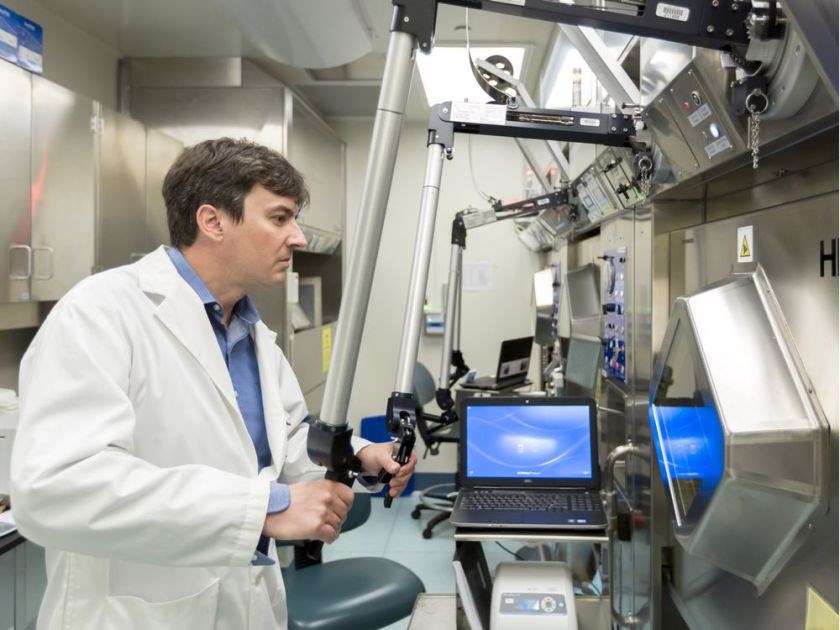A donor who has given the B.C. Cancer Foundation $18.35 million insists on remaining anonymous.
The foundation will not even say whether the generous philanthropist is alive or dead. But the individual has given the foundation a total of $29 million over their lifetime, including the latest amount. That makes it a record in individual lifetime giving to the foundation.
The largest single gift came from an estate — the Jambor McCarthy gift of $21.4 million.
Sarah Roth, president and CEO of the foundation — the fundraising arm of B.C. Cancer — said the donor had requested to remain “strictly anonymous.”
“The donation is the second-largest individual investment in cancer for our organization or for our province that we are aware of, and one of the top donations to cancer in Canada,” she said.
The gift will be used to establish a molecular imaging and therapeutics program utilizing “smart” drugs called radiopharmaceuticals (radioactive particles that deliver a highly concentrated treatment to cancerous cells). The radioactive isotope treatment has been used in medical imaging and to treat thyroid cancer for many years, but only more recently has the radioligand therapy expanded to other types of cancer, particularly incurable prostate cancer.
The treatment is said to work by breaking bonds in cancer cell DNA. In studies, researchers have shown they can pair isotopes with a protein or antibody that specifically targets cancer cells. The molecule searches for cancer cells and then binds to them, allowing the radioactive therapy to attack.
Some B.C. patients have, in the past year, gone to Germany for such treatment since it wasn’t available here. Experts caution the treatment is not a miracle, but offers patients with untreatable cancers more hope.
At an event Wednesday to announce the “transformational” gift, Joanna Clark spoke about her husband Daryl, 59, who died last year after a 31Ú2-year battle with advanced prostate cancer. The well-known Vancouver corporate lawyer went to Munich, Germany, last spring for radioligand therapy but died a month later.
Clark said while it would seem her husband got the treatment too late for any benefit, “I find comfort in knowing that his vision is becoming a reality for others.”
The treatment did appear to offer significant benefit for 77-year-old Vancouver Island resident Ray Band, who went to Hamburg, Germany, this year after his Vancouver oncologist informed him he had only about six months to live.
Band said he got to the Hamburg hospital on a Monday, had some imaging tests done the next day and by Wednesday, he was getting the treatment. He flew home at the end of the week and learned that the cancer he was first diagnosed with more than 20 years ago was largely under control, with substantial shrinkage in the tumours throughout his body.
The now-retired mining geologist said he hopes the treatment becomes the “standard of care” in B.C., as it is in Germany.
The drugs used in such treatment are not unlike the radiotracer isotopes used in cancer imaging — energy-emitting atoms that make tumours light up during imaging tests such as PET or CT scans. Isotopes used in imaging tests, however, don’t have therapeutic drugs attached to them, while radiopharmaceuticals do.
Dr. Francois Benard, B.C. Leadership Chair in Functional Cancer Imaging, said the funds would be used over the next five years to scale up the imaging and therapeutics program so that clinical trials can be conducted using isotopes loaded with drugs that bind specifically to cancerous sites in the body of patients with cancer that has spread.
The radioactive drugs — some of which will be made in Vancouver at Triumf and at B.C. Cancer — are injected into patient’s veins; the treatment is then distributed throughout the body, zeroing in on detectable cancerous cells.
Benard said there are about 90 people working in the molecular imaging department now but he expects the donation will enable B.C. Cancer to acquire new equipment, plus hire another 20 to 30 scientists, physicists, and research assistants. He said he learned about the donation only a few months ago.
The first research trial to be led by B.C. Cancer will be a multi-centre study across Canada using such therapy. About 200 prostate cancer patients who have failed conventional treatment will be recruited for the trial beginning sometime in 2019.



